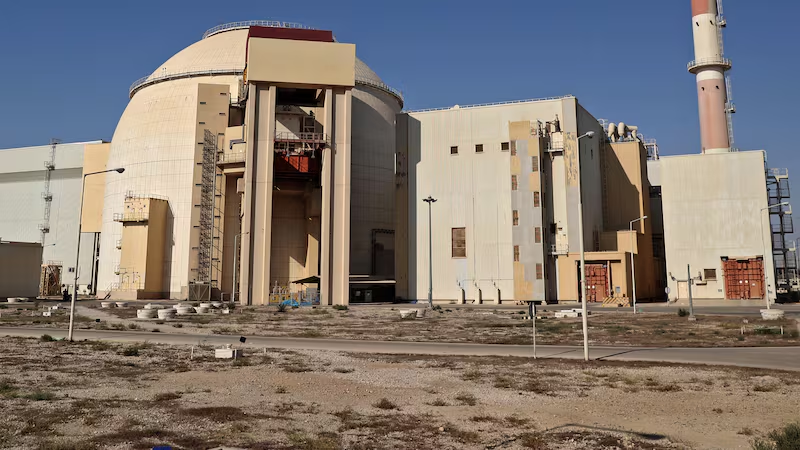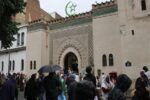The head of the UN’s atomic watchdog, Rafael Grossi, today warned of the “most serious” consequences if Israel were to strike Iran’s Bushehr nuclear power plant, raising grave concerns about potential regional escalation.
“It is an operating nuclear power plant and as such it hosts thousands of kilograms of nuclear material,” the International Atomic Energy Agency (IAEA) chief told the UN Security Council. “Countries of the region have reached out directly to me to express their concerns. I want to make it absolutely and completely clear: In case of an attack on the Bushehr nuclear power plant, a direct hit could result in a very high release of radioactivity to the environment.“
Grossi also cautioned that targeting the power lines supplying electricity to the plant could lead to “severe” consequences both within and beyond Iran’s borders, potentially requiring millions of residents to take iodine tablets and facing widespread food and water shortages. His warning comes a day after an Israeli military official retracted a statement suggesting a strike had occurred on Bushehr, Iran’s sole nuclear power plant, stating it was a “mistake” and offering no confirmation or denial of a hit on the Russian-built facility.
Accusations and Calls for Action at the UN Security Council
Iran’s UN Ambassador Amir Iravani accused Israel of attacking civilians and urged the Security Council to respond. “If the Council fails to act now, it will send a message that international law and resolution apply selectively,” he stated. He also expressed concern over “credible reports that the United States… may be joining this war,” warning that such involvement would violate the Non-Proliferation Treaty (NPT) and threaten global security.
UN Secretary-General Antonio Guterres called on Iran to uphold its NPT commitments and reiterated Tehran’s previous statements that it is not seeking nuclear weapons.
Israel’s Ambassador Danny Danon strongly rebuked Iran’s envoy, questioning his audacity to request an emergency Security Council session and seek international sympathy given Iran’s “genocidal agenda.” “Iran has already enriched uranium to near weapons-grade levels. It cannot be denied. We saw the reports. It has built deep underground facilities designed to survive bunker-busting bombs. It has advanced missile delivery systems, and it has lied to the IAEA and the world at every step,” Danon asserted, describing Israel as “holding the line between civilization and genocidal jihadist imperialism.”
International Reactions and Warnings
Russia’s UN Envoy Vasily Nebenzya, whose country has citizens working at Bushehr, called for immediate de-escalation and urged the council to prevent “another devastating” war with unpredictable repercussions. He defended Iran’s NPT compliance, stating, “Not a single of the member states of this body is under more stringent oversight and scrutiny.” Nebenzya accused the US, UK, France, and Germany of attempting to “persuade all parties to believe the groundless fabrications about plans allegedly harbored by Tehran to gain possession of nuclear weapons.”
The US Ambassador Dorothy Shea reiterated President Donald Trump’s clear stance that Iran’s leadership “must completely abandon its nuclear enrichment program and all aspirations of acquiring a nuclear weapon.” She warned, “We can no longer ignore that Iran has all that it needs to achieve a nuclear weapon. All it needs is a decision from their supreme leader [Ayatollah Ali Khamenei].”
China’s UN Ambassador Fu Cong called for an immediate ceasefire, condemning Israel’s actions as violations of international law that threaten Iran’s sovereignty and regional peace. He warned that the situation must not be allowed to spiral into an “unknown abyss.”
Kuwait, speaking on behalf of the Gulf Cooperation Council (GCC), condemned Israeli attacks on Iran and its nuclear facilities, warning of “dangerous repercussions” for regional security and stability and calling them a “blatant violation of the principles of international law and the UN Charter.” The GCC is intensifying diplomatic efforts, emphasizing that diplomacy and dialogue remain the “only choice” to prevent further escalation and “catastrophic consequences.”







